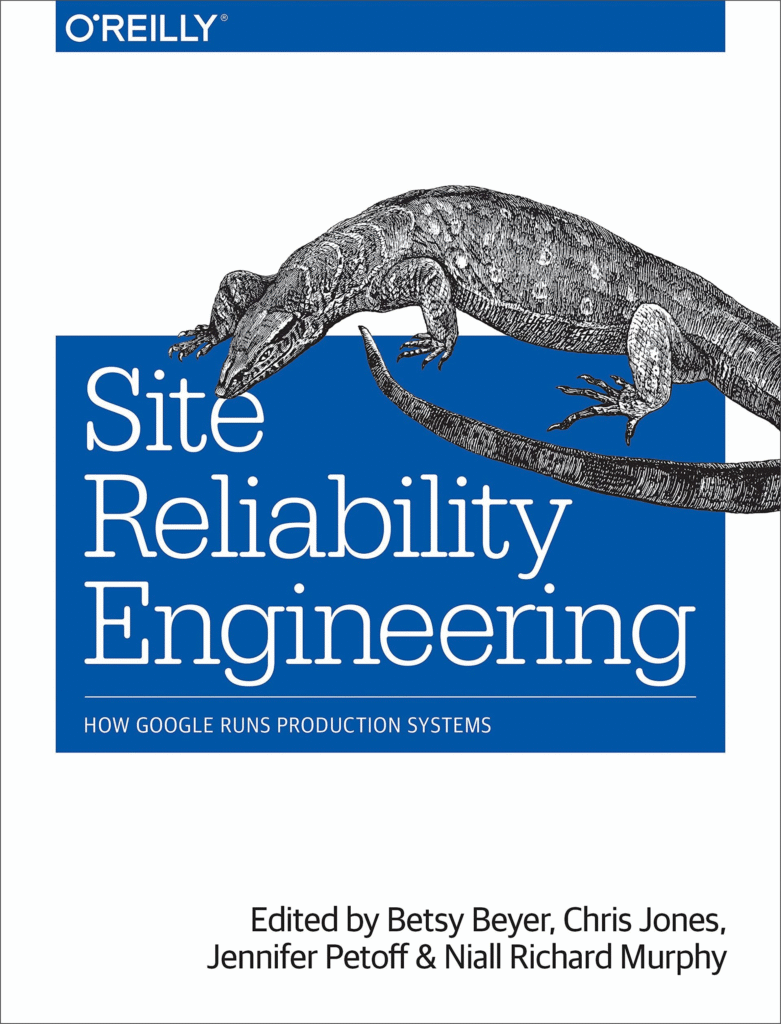
Amazon Web Services (AWS) is a cloud computing platform that provides a wide range of services, including computing, storage, and database services, to name a few. As the demand for cloud computing continues to grow, the need for certified professionals who can manage these services efficiently also increases. AWS Certified Solution Architect Associate Exam is an entry-level certification exam that validates the candidate’s knowledge of AWS architectural principles and services. In this blog post, we will discuss how to pass the AWS Certified Solution Architect Associate Exam in two months with a practical guide but first, we need to understand why.
Why you should get the AWS Certified Solution Architect Associate certificate?
Passing the AWS Certified Solution Architect Associate Exam can benefit your career in several ways. Here are a few reasons why you should consider getting certified:
- Increased Career Opportunities: AWS is the leading cloud computing platform, and companies are increasingly adopting it for their infrastructure needs. As a certified AWS Solution Architect Associate, you will have a competitive advantage over non-certified professionals in the job market. This certification can help you land job roles such as AWS Solutions Architect, Cloud Engineer, and Cloud Infrastructure Architect.
- Enhanced Credibility: AWS Solution Architect Associate certification is a globally recognized and respected credential. It demonstrates your knowledge and skills in designing and deploying scalable, highly available, and fault-tolerant systems on AWS. This certification can enhance your credibility and increase your professional reputation.
- Higher Salary: Certified professionals generally earn higher salaries than their non-certified counterparts. According to a survey conducted by Global Knowledge, AWS Solution Architect Associate certified professionals earn an average salary of $130,883 per year. This certification can help you negotiate a higher salary or secure a job with a higher pay scale.
- Continuous Learning: AWS regularly updates its services and features, and certified professionals are required to stay up-to-date with these changes. This certification requires you to continue learning and improving your skills, which can help you stay relevant in the industry.
The AWS Certified Solution Architect Associate Exam is a challenging exam that requires dedication, commitment, and a solid understanding of AWS services and architecture principles.
While the exam is challenging, it is not impossible to pass. With the right study plan, practice, and dedication, you can increase your chances of passing the exam. The practical guide outlined in this blog post can help you prepare for the exam in two months and increase your chances of passing.
Step 1: Understanding the Exam
The AWS Certified Solution Architect Associate Exam tests the candidate’s knowledge of AWS architectural principles and services, as well as their ability to design and deploy scalable, highly available, and fault-tolerant systems on AWS. The exam consists of 65 multiple-choice questions that need to be answered within 130 minutes. The exam fee is $150, and the passing score is 720 out of 1000.
Step 2: Setting a Study Plan
To pass the AWS Certified Solution Architect Associate Exam, you need to create a study plan that works for you. Since the exam covers a wide range of topics, it is essential to set realistic study goals and stick to them. A two-month study plan should be sufficient for most candidates.
Week 1-2: AWS Fundamentals
Week 1-2 of preparing for the AWS Certified Solution Architect Associate Exam focuses on learning the fundamentals of AWS. In this section, you will learn about AWS core services, cloud computing basics, and AWS architecture principles. Here are some topics to focus on during this period:
- AWS Core Services: You should start by learning about the core services of AWS, including Elastic Compute Cloud (EC2), Simple Storage Service (S3), and Relational Database Service (RDS). These services are fundamental to most AWS applications and are essential for designing scalable and highly available systems.
- Cloud Computing Basics: You should also learn about the basics of cloud computing, including the different deployment models (Public, Private, and Hybrid Clouds) and service models (Infrastructure as a Service, Platform as a Service, and Software as a Service).
- AWS Architecture Principles: You should learn about AWS architecture principles, including designing for availability, scalability, and fault tolerance. This includes understanding the different AWS regions and availability zones and how to design your application for maximum availability and resilience.
- AWS Security: You should learn about AWS security best practices, including identity and access management, network security, and data encryption. You should also understand how to secure your AWS infrastructure against common security threats.
- Hands-on Practice: In addition to studying the theory, you should also practice using AWS services through the AWS Free Tier. This will help you become familiar with the AWS console and give you practical experience with using AWS services.
During this period, you should aim to complete the AWS Certified Cloud Practitioner Exam (if you haven’t already done so). This exam covers the fundamentals of AWS and will give you a solid foundation for preparing for the AWS Certified Solution Architect Associate Exam.
Week 1-2 of preparing for the AWS Certified Solution Architect Associate Exam focuses on learning the fundamentals of AWS, including core services, cloud computing basics, AWS architecture principles, security, and hands-on practice. By mastering these topics, you will be well-prepared for the rest of your study plan.
Week 3-4: Compute Services
Week 3-4 of preparing for the AWS Certified Solution Architect Associate Exam focuses on learning about AWS compute services. In this section, you will learn about the different compute services offered by AWS, including Elastic Compute Cloud (EC2), Elastic Container Service (ECS), Elastic Kubernetes Service (EKS), and Lambda. Here are some topics to focus on during this period:
- Elastic Compute Cloud (EC2): You should start by learning about EC2, which is a scalable and highly available compute service that allows you to launch and manage virtual machines (instances) in the cloud. You should learn about the different types of instances, instance purchasing options, storage options, and networking options available in EC2.
- Elastic Container Service (ECS) and Elastic Kubernetes Service (EKS): You should also learn about containerization and how to deploy and manage containerized applications on AWS using ECS and EKS. You should learn about the different deployment options, load balancing, and scaling options available in these services.
- Lambda: You should learn about serverless computing and how to use AWS Lambda to run your code without provisioning or managing servers. You should learn about the different trigger options available in Lambda, including API Gateway, S3, and CloudWatch Events.
- Autoscaling: You should also learn about autoscaling and how to automatically adjust the number of instances running in your application based on demand. You should learn about the different types of autoscaling policies available in AWS and how to configure them.
- Hands-on Practice: As with the previous week, you should also practice using these services through the AWS Free Tier. This will help you become familiar with the AWS console and give you practical experience with using these services.
During this period, you should also start practicing for the AWS Certified Solution Architect Associate Exam by taking practice tests and reviewing sample questions. This will help you become familiar with the exam format and the types of questions you can expect to see on the actual exam.
Week 3-4 of preparing for the AWS Certified Solution Architect Associate Exam focuses on learning about AWS compute services, including EC2, ECS, EKS, Lambda, and autoscaling. By mastering these topics, you will be well-prepared for the compute-related questions that may appear on the exam.
Week 5-6: Storage Services
Week 5-6 of preparing for the AWS Certified Solution Architect Associate Exam focuses on learning about AWS storage services. In this section, you will learn about the different storage services offered by AWS, including Simple Storage Service (S3), Elastic Block Store (EBS), Glacier, and Elastic File System (EFS). Here are some topics to focus on during this period:
- Simple Storage Service (S3): You should start by learning about S3, which is a highly scalable and durable object storage service. You should learn about the different storage classes available in S3, including S3 Standard, S3 Intelligent-Tiering, S3 Standard-Infrequent Access, and S3 One Zone-Infrequent Access. You should also learn about S3 security, including access control policies, encryption options, and bucket policies.
- Elastic Block Store (EBS): You should also learn about EBS, which provides block-level storage volumes for use with EC2 instances. You should learn about the different volume types available in EBS, including General Purpose SSD (GP2), Provisioned IOPS SSD (IO1), and Throughput Optimized HDD (ST1).
- Glacier: You should learn about Glacier, which is a low-cost archival storage service. You should learn about the different storage classes available in Glacier, including Glacier Standard, Glacier Expedited, and Glacier Bulk.
- Elastic File System (EFS): You should also learn about EFS, which provides scalable file storage for use with EC2 instances. You should learn about the different performance modes available in EFS, including General Purpose and Max I/O. You should also learn about EFS security, including access control policies and encryption options.
- Hands-on Practice: As with the previous weeks, you should also practice using these services through the AWS Free Tier. This will help you become familiar with the AWS console and give you practical experience with using these services.
During this period, you should also continue practicing for the AWS Certified Solution Architect Associate Exam by taking practice tests and reviewing sample questions. This will help you become more familiar with the exam format and the types of questions you can expect to see on the actual exam.
Week 5-6 of preparing for the AWS Certified Solution Architect Associate Exam focuses on learning about AWS storage services, including S3, EBS, Glacier, and EFS. By mastering these topics, you will be well-prepared for the storage-related questions that may appear on the exam.
Week 7-8: Network Services and Security
Week 7-8 of preparing for the AWS Certified Solution Architect Associate Exam focuses on learning about AWS network services and security. In this section, you will learn about the different networking services offered by AWS, including Virtual Private Cloud (VPC), Route 53, Direct Connect, and Elastic Load Balancing (ELB). You will also learn about security-related topics, including Identity and Access Management (IAM), Key Management Service (KMS), and AWS Organizations. Here are some topics to focus on during this period:
- Virtual Private Cloud (VPC): You should start by learning about VPC, which is a logical isolated section of the AWS Cloud that allows you to launch AWS resources in a virtual network. You should learn about VPC components, including subnets, security groups, and network ACLs. You should also learn about VPC peering, VPC endpoints, and NAT gateway.
- Route 53: You should learn about Route 53, which is a scalable and highly available Domain Name System (DNS) service. You should learn about how to create and manage DNS records, including A records, CNAME records, and MX records.
- Direct Connect: You should also learn about Direct Connect, which provides dedicated network connections between your on-premises data center and AWS. You should learn about the different connection options available in Direct Connect, including dedicated connections and hosted connections.
- Elastic Load Balancing (ELB): You should learn about ELB, which distributes incoming traffic across multiple targets, such as EC2 instances or containers. You should learn about the different types of load balancers available in ELB, including Application Load Balancer, Network Load Balancer, and Classic Load Balancer.
- Identity and Access Management (IAM): You should also learn about IAM, which provides centralized control of AWS resources. You should learn about IAM users, groups, and roles, and how to use IAM policies to control access to AWS resources.
- Key Management Service (KMS): You should learn about KMS, which provides managed encryption keys that you can use to encrypt your data stored in AWS. You should learn about the different types of keys available in KMS, including customer master keys (CMKs) and data encryption keys (DEKs).
- AWS Organizations: You should also learn about AWS Organizations, which allows you to manage multiple AWS accounts centrally. You should learn about how to create and manage AWS accounts, and how to use service control policies (SCPs) to control access to AWS services.
- Hands-on Practice: As with the previous weeks, you should also practice using these services through the AWS Free Tier. This will help you become familiar with the AWS console and give you practical experience with using these services.
Week 7-8 of preparing for the AWS Certified Solution Architect Associate Exam focuses on learning about AWS network services and security, including VPC, Route 53, Direct Connect, ELB, IAM, KMS, and AWS Organizations. By mastering these topics, you will be well-prepared for the networking and security-related questions that may appear on the exam.
Step 3: Practice, Practice, Practice
One of the most critical steps in preparing for the AWS Certified Solution Architect Associate Exam is practicing. You should take as many practice exams as possible to get a feel for the exam format and the types of questions that will be asked. AWS provides a free practice exam on their website, which you should take before the actual exam. Additionally, there are many third-party practice exams available, such as those from Whizlabs, Udemy, and A Cloud Guru.
Step 4: Stay Up-to-Date with AWS Services
AWS regularly releases new services and features, so it is essential to stay up-to-date with these changes. You should subscribe to AWS newsletters and blogs to keep up with the latest news and updates. Additionally, you should regularly review the AWS documentation to ensure that you are familiar with the latest features and services.
Step 5: Exam Day
Step 5: Exam Day is the final step in your journey to becoming an AWS Certified Solution Architect Associate. Here are some tips to help you prepare for and succeed on exam day:
- Review your notes and study materials: On the day before the exam, take some time to review your notes and study materials. This will help refresh your memory on the topics you have been studying and help you identify any areas where you may need to focus your attention.
- Get a good night’s sleep: It’s important to be well-rested on exam day, so make sure to get a good night’s sleep. Try to go to bed early, and avoid consuming caffeine or alcohol before bedtime.
- Eat a healthy breakfast: On the morning of the exam, make sure to eat a healthy breakfast. This will help give you the energy you need to stay focused and alert during the exam.
- Arrive early: Plan to arrive at the testing center at least 30 minutes before your scheduled exam time. This will give you plenty of time to check in, review the exam rules, and get settled before the exam begins.
- Bring the necessary materials: Make sure to bring a valid form of government-issued identification, such as a passport or driver’s license, to the testing center. You should also bring a pen and paper, as well as any other materials allowed by the testing center.
- Stay calm and focused: During the exam, it’s important to stay calm and focused. If you encounter a question that you don’t know the answer to, don’t panic. Take a deep breath, and move on to the next question. You can always come back to difficult questions later.
- Pace yourself: The AWS Certified Solution Architect Associate Exam consists of 65 questions, and you have 130 minutes to complete the exam. This means you have an average of just over two minutes per question. Make sure to pace yourself, and don’t spend too much time on any one question.
- Review your answers: After you have answered all of the questions, take some time to review your answers. Make sure you have answered every question, and double-check your answers to ensure they are accurate.
- Celebrate your success: After you have completed the exam, take some time to celebrate your success. Becoming an AWS Certified Solution Architect Associate is a significant accomplishment, and you should be proud of your hard work and dedication.
Conclusion
Passing the AWS Certified Solution Architect Associate Exam requires dedication, commitment, and a solid understanding of AWS services and architecture principles. It also requires a significant amount of time and effort. By following the practical guide outlined in this blog post, you can prepare for the exam in two months and increase your chances of passing. Remember to set a realistic study plan, practice, stay up-to-date with AWS services, and arrive early on exam day. Good luck with your exam!


















